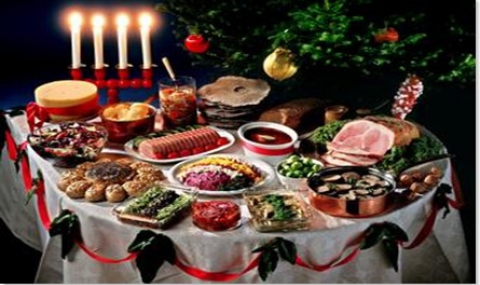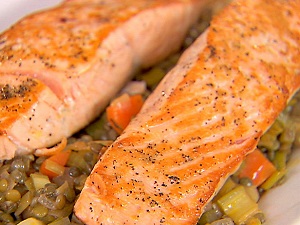Swedish News:
Do you believe in God? Homemade Christmas food. Toxic salmon.
-
 Do you believe in God? 29 percent of all Swedes call themselves religious.
Do you believe in God? 29 percent of all Swedes call themselves religious. -
-
Do you believe in God?
”Humanisterna,” the Swedish Humanist Association, is the largest humanist/rationalist organization in Sweden, with more than 5,500 members. The organization works for a secular life stance founded on reason, compassion and responsibility and one of its goals is a complete secular society, free of religious oppression, discrimination and other infringements on human rights. Humanisterna’s chairman Christer Sturmark said in a recent article published in Swedish Metro: ”There’s a lot of things I don’t believe in. Among them is God.” Sturmark adds that the secular movement is represented in the European parliament, as well as UN institutions, and that since 2011 it is possible to study secular humanism in Swedish schools. ”A great success for us,” according to Sturmark. But just how secular are the Swedish people? A recent WIN-Gallup survey (from 2012) shows that Swedes view themselves like this:
29 percent are religious
50 percent non-religious
8 percent convinced atheists
12 percent unsure or unwilling to say whether they are religious. -
 Don’t these Swedish delicacies look enticing? The two dishes that most Swedes say they will make (or plan to make) from scratch for the ”julbord” are meatballs and Jansson’s frestelse.
Don’t these Swedish delicacies look enticing? The two dishes that most Swedes say they will make (or plan to make) from scratch for the ”julbord” are meatballs and Jansson’s frestelse. -
-
Homemade Christmas food
What’s on your table for Christmas? You can probably guess what’s on the table of the average Swede. But how much of that food is homemade, and what is it? According to an annual survey from Livsmedelsverket (the National Food Agency), Swedes make Janssons frestelse and meatballs themselves (or at least they have the ambition to), while they purchase the mustard. Perhaps after the gorging of the Christmas food, it’s time to fast? Or eat a bit more healthy? According to Livsmedelsverket, Swedes consume 25 percent more meat than is recommended. Simply by decreasing consumption to the recommended level would mean much for the health of Swedes as well as for the environment. Says nutritionist and doctoral candidate Elinor Hallström: ”The protein would also be reduced by a quarter, but that wouldn’t be a big problem since the average Swede consumes more protein than necessary. However, the decreased intake of minerals, mainly iron, would have to be supplemented, especially for fertile women.” According to Hallström’s calculations, the average Swede eats 70 kilos (154 pounds) of meat and cured meat products a year, which is 20 kilos (44 pounds) too much. -
 ”Lax” (salmon) is good for you, but not if it comes from the Baltic, where the salmon contain high levels of toxins.
”Lax” (salmon) is good for you, but not if it comes from the Baltic, where the salmon contain high levels of toxins. -
Toxic salmon
The levels of the environmental pollutants PCBs and dioxins in wild salmon caught in the Baltic Sea are still too high for safe consumption. Children and women of childbearing age should not eat the fish more often than two to three times a year, according to Livsmedelsverket (the National Food Agency). In May this year, firms in Sweden sold Baltic salmon in Europe despite a EU ban targeting chemicals in fish. The ban does not apply to Baltic salmon sold to domestic consumers in Sweden, Finland and Latvia, but the sellers are required to give advice about safe limits for consumption, set by the EU. It was in 2002 that the EU ban came about, prompted by dioxins found in Baltic herring and salmon. -
-
